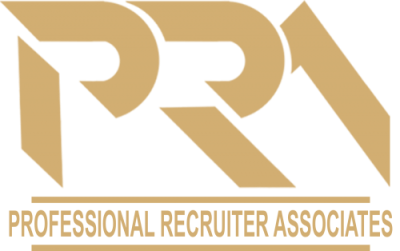Your job search won’t go well without this one thing
 p-1-your-job-search-wont-go-well-without-this-one-thing
p-1-your-job-search-wont-go-well-without-this-one-thing
https://www.fastcompany.com/90640047/your-job-search-wont-go-well-without-this-one-thing
If you’re in the job market—and who isn’t these days!—you’ll want to present yourself as a strong candidate every step of the way. And there is nothing more important in doing so than having this one thing.
It’s a single, clear, compelling message about yourself.
After all, you need to be telling your story, and at the heart of a good story is a message. Having a clear, single sentence message will be your ticket to getting across your value and readiness for a new assignment.
Here is how this message will serve you at every step of the process:
1. In your elevator pitch
At the start of your job journey you’ll need a message that’s part of an elevator pitch. No matter who you meet, you’ll have a quick message to deliver about what you’re looking for, and what you can offer.
This message should be short but compelling. An elevator pitch is generally 30-60 seconds, and its message should be no more than 15 seconds. To create it ask yourself: “What do I believe about myself that I want to get across in my job search?”
The result will be a finely chiseled message like this: “I would love to find a senior role in marketing. This area has been a strong suit for me and I have the experience to lead a marketing team to new heights.” Having this elevator message will allow you to turn a casual conversation into a career opportunity.
2. In your networking conversations
Once you start actively networking, you’ll want a message to deliver to each networking contact you touch base with.
Each networking message should be customized. So, for example, if you’re interested in moving ahead in your current organization, your message to your boss might be: “I believe I’m ready for a new assignment and would like to discuss possibilities with you.” If you’re looking externally your message might be: “I have a strong background in digital communications and am looking for a leadership position in this field.”
The point is that if you approach anyone you need to know what one idea you want to get across about yourself. Without such a springboard, your temptation might be just to chit-chat.
3. In your résumé
While few articles or books talk about the need for a résumé message, you absolutely need one that’s simple, clear, and jargon-free.
Even the robot who scans your résumé will look for a fluid statement at the top of your résumé. This is your summary statement. You don’t want a lot of sentence fragments stuck together, bursting with key words. Instead, write out one sentence that captures your value to the future employer.
Here’s an excellent message: A seasoned HR professional who has led teams of high-achievers in designing and building eight programs that reached over 100,000 employees in three successive organizations.”
Note that this summary statement is (1) one sentence; (2) jargon-free; (3) specific (not boiler plate), and (4) shows hard numbers designating impact.
4. In your cover letter
If you send a cover letter, make sure it has a single, clear message. This should generally be the second sentence in the letter. (The first sentence explains what job you’re applying for.)
In this critical message statement, you’ll want to convey enthusiasm about the position and your readiness to take it on. For example, your message might be: “I am excited about the opportunity this position offers and I am confident I will be able to achieve the goals outlined and exceed them.”
This cover letter message should show passion and confidence that you are the candidate who can fulfill the role. The cover letter adds warmth and personality to the résumé.
5. In your job interview
Your message in the interview should be delivered early in the conversation and it should capture in clear language your readiness for the role you’re discussing.
Open the interview by thanking the interviewer for her time, share your excitement about meeting with her. Then come forward with your key message: “This is the position I’ve been waiting for: It’s one that will build on my marketing background in several extraordinary ways.” You will discuss those “ways” in your interview.
For each question you’re asked in the interview, reinforce this message. So if you’re asked—as you no doubt will be—”tell me about yourself,” pick up on the message you have put forward in the opening and say, “I am someone with a huge strength in marketing, and that’s why I’m so interested in this position and working for your company.”
6. In your salary negotiation
Finally, having a message is critical in your salary conversation. If you don’t have a message prepared, you may have to take whatever is offered.
If you’re asked what you’re expecting as a salary, don’t give a number. If you decide to share your current salary, your message should be: “I am making $XX now, and given the larger responsibilities in this new role, I would expect a significant increase.”
This strategy allows you to suggest a range, but it leaves the employer to guess at what you’ll take. If they want you, they’ll likely go high. In my first job I didn’t name a figure, and the employer gave me twice what I had expected.

Professional Recruiter Associates